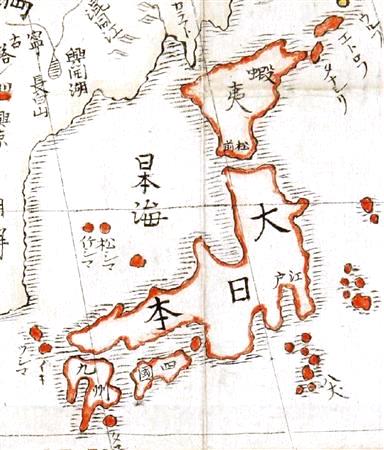Japan: The Land of the Rising Sun

- Coat of Arms/Flag: The flag depicts a red sun on a white background, symbolizing the country’s connection to the divine.
- Motto: “Wa” – meaning harmony, peace, and balance – is the guiding principle of Japanese society.
- Status: A highly developed and prosperous nation, known for its rich culture and technological advancements.
- General Alignment: The people are generally aligned towards neutrality, seeking to maintain balance and harmony in all aspects of life.
- Religious affiliations: The dominant religions are Shinto and Buddhism, although there are also many smaller sects and cults that worship local deities and spirits.
- Capital City: Kyoto is the spiritual and cultural heart of Japan, with a long history of imperial rule and artistic expression.
- Other Settlements: Other notable cities include Edo (now known as Tokyo), Osaka, and Nagoya.
- Common Languages: Japanese is the most widely spoken language in Japan, although there are also many regional dialects and minority languages.
- Religion(s): Shinto and Buddhism are the two main religions, with many other local deities and spirits also worshipped.
- Demographics: The population of Japan is primarily of Japanese ethnicity, with smaller populations of Ainu, Ryukyuan, and other minority groups.
- Government: Japan is ruled by an emperor, who holds little political power but serves as a spiritual and cultural leader. The day-to-day affairs of government are managed by a shogun and a council of daimyo, or feudal lords.
- Legislature: The council of daimyo serves as a de facto legislature, advising the shogun on matters of policy and governance.
- Population: The population of is estimated to be around 12 million people.
- Notable Places: Some of the most notable places include the imperial palace in Kyoto, the Todai-ji temple in Nara, and Mount Fuji.
- Current Ruler: The emperor of Japan is Go-Hanazono, a devout Shintoist who is known for his patronage of the arts and his efforts to maintain peace and stability in the realm.
- Other Notable Residents: Other notable residents of Japan include the shogun Ashikaga Yoshimasa, the poet Matsuo Basho, Warrior Miyamoto Musashi, and the warrior monk Benkei.
- Associated Deities/Saints: The people worship a vast pantheon of deities and spirits, including Amaterasu (the sun goddess), Hachiman (the god of war), and Inari (the goddess of fertility and agriculture).
- Influence/Power: it a major cultural and economic power in the region, with a highly developed economy and a rich artistic tradition.
- Notable Alliances/Enemies: Japan has historically maintained strong alliances with China and Korea, although there have been periods of conflict and tension between the nations as well.
- Quest Hooks: Quests in Japan may involve seeking the blessings of powerful deities, battling demons and other malevolent spirits, or uncovering ancient artifacts and treasures.
- Threats: Threats to Japan include invasion by foreign powers, natural disasters such as earthquakes and typhoons, and the malevolent influence of powerful demons and other supernatural entities.
- Treasures/Artifacts: Some of the most valuable treasures and artifacts include ancient samurai swords, intricately decorated kimonos, and exquisite porcelain ceramics.
- Legendary Creatures/Mythical Entities: Japan is home to a vast array of legendary creatures and mythical entities, including dragons, kappa (water spirits), and kitsune (fox spirits). Other notable creatures include oni (demons), tengu (bird-like beings), and yuki-onna (snow women). These entities are often woven into local folklore and mythology, and may be encountered by travelers or adventurers journeying through Japan.

Japan is a land of natural beauty and diverse cultural practices. The country is divided into many provinces, each with its own unique physical features. The landscape varied from the snow-capped peaks of the Japanese Alps to the warm, fertile valleys of the Kanto region.
The people are deeply rooted in tradition and honor. Samurai warriors roamed the countryside, loyal to their lords and dedicated to their craft. The common people, mostly farmers and artisans, live simple lives with a deep respect for their ancestors and the spirits that inhabited the natural world.
Religion plays a significant role in Japanese life, with Shinto and Buddhism being the dominant belief systems. Local beliefs and superstitions also played a role in daily life, with various supernatural beings such as kami (spirits), yokai (monsters), and oni (demons) being feared and respected.
Its currently ruled by the Ashikaga shogunate, a military government that had been established in the mid-14th century. The country is in a period of relative peace, , after several decades of civil war. However, tensions between the shogunate and regional warlords were starting to rise, setting the stage for future conflicts.
Despite the political tensions, Japan is a thriving society with a rich cultural heritage. Artistic traditions such as Noh theater, haiku poetry, and ukiyo-e woodblock prints flourish time, and innovations in agriculture and trade helped to sustain the country’s growing population.

 Buy me a coffee
Buy me a coffee